Selection of our Projects
We have compiled a selection of projects from our subject areas of reactor safety, decommissioning and dismantling, storage, disposal, safety, radiation protection and environment and energy, so that you can get an idea of what our work as a research and expert organisation looks like in concrete terms.

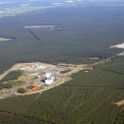
From 2011 to 2013, GRS - together with eight other project partners - was involved in the research project "Preliminary Safety Assessment of the Gorleben Site" (VSG), dealing with various questions concerning the Gorleben site and fundamental methodological issues of disposal. The project was funded by the Federal Environment Ministry (BMU).
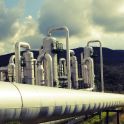
The aim of the integrated Geo-Dat project was to set up a thermodynamic database for the modelling of complex geochemical processes in deep geothermal layers of the North German Basin. Results from the integrated project are incorporated into the thermodynamic reference database THEREDA.
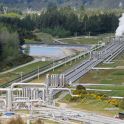
Apart from hydropower, biomass, wind and solar energy, the relevance and use of geothermal energy has been growing over the last couple of years. This is why different research projects are currently looking into the further development of the technology, ways of reducing investment costs, and means of exploiting geothermal potentials in a safe way.
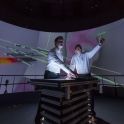
Together with the Federal Institute for Geosciences and Natural Resources (BGR), DBE TECHNOLOGY GmbH, and the Fraunhofer Institute for Factory Operation and Automation (IFF), GRS has developed a new tool for repository research: the virtual underground laboratory VIRTUS.
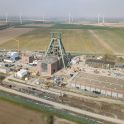
In its "2009 Konrad Transport Study", GRS examined and assessed the possible radiological effects of shipments of radioactive waste to the Konrad repository. The study concludes that these shipments do not result in any relevant radiological risk for man and the environment.
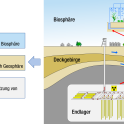
For a long-term assessment of the safety of final repositories for radioactive waste, the program package RepoTREND (Transport and REtention of Non-decaying and Decaying contaminants in a final REPOsitory) is being developed and applied by GRS. In this program package, all relevant processes which contribute to the mobilisation and release of contaminants from the repository, transport through the host rock and adjacent rock formations as well as exposure in the biosphere have been implemented.

The main objective of THEREDA is the creation of a comprehensive, internally consistent thermodynamic reference database for geochemical modelling, with the work focusing on the special conditions in the near-field of a repository for radioactive waste in Germany.
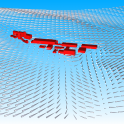
GRS has developed the atmospheric dispersion code ARTM on behalf of the Federal Ministry for the Environment and the Federal Office for Radiation Protection. ARTM simulates the dispersion of airborne radioactive substances and their deposition on the ground.

For repository search and design, it is important to have a good understanding of the geology of a possible site and the processes that take place in the host rock. In Germany, the three potential host rocks for disposal are salt, clay and crystalline rocks (e.g. granite). The term deep underground gives the impression of being rigid and inactive. Only a closer look reveals the diverse chemical, mechanical and hydraulic processes that play a role in the underground.